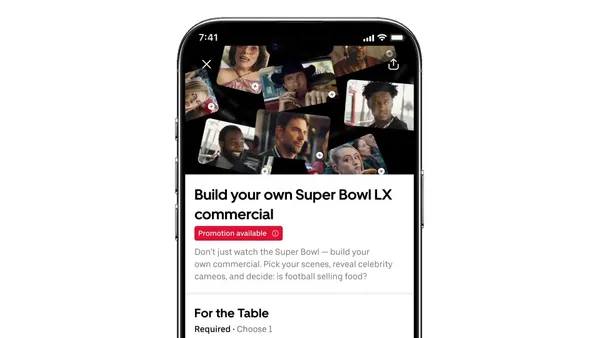Dive Brief:
- Shinola, a luxury brand of watches, handbags, bicycles and accessories, teamed with location data provider PlaceIQ and media agency MullenLowe Mediahub for location-based marketing campaigns to drive in-store visits across the country, according to a statement made available to Mobile Marketer.
- The work was an extension of Shinola's "Let's Roll Up Our Sleeves" campaign that featured ads with inspiring messages to rally people for community service. The campaigns included interactive, mobile ads with unique messaging and Shinola products based on the recipient's location.
- The location data revealed places that Shinola's customers visited frequently — coffee shops, jazz clubs and vegan restaurants — and helped the brand to reduce ad dollars by engaging them at these places with localized messaging. Using PlaceIQ data, Shinola targeted audiences that saw the brand's out-of-home ads.
Dive Insight:
Shinola's mobile campaign is another example of a retailer seeking to drive foot traffic by harnessing consumers' geolocation data. The campaign's results were measured with PlaceIQ’s Place Visit Rate metric to determine subsequent visits to retail stores and to gauge that campaign's return on investment, though the companies won't disclose those specific metrics.
PlaceIQ has shown that retailers are looking to relay messages to consumers not just in or close to their stores, but at various venues where they might be spending time. The New York-based company this year teamed up with mobile marketing company AppBoy and clothing retailer Urban Outfitters to deliver push notifications promoting party dresses to women frequenting bars and nightlife hotspots. The messages boosted customer conversions by 75% and related revenue by 146%.
The potential power of this data has led to surging interest in location-based marketing spend, which is projected to climb at an annual compound growth rate of 24.6% from almost $10 billion in 2015 to $29.5 billion in 2020, according to BIA/Kelsey. Data gaps have dogged location campaigns as well. A study by Integral Ad Science found that 22% of marketers pegged in-store attribution as the biggest marketing challenge. Though location-based marketing is still in its infancy, another challenge will surround how best to serve up personalized real-time ads for mobile users, rather than generic promotions offering 10% off at any given store nearby.











